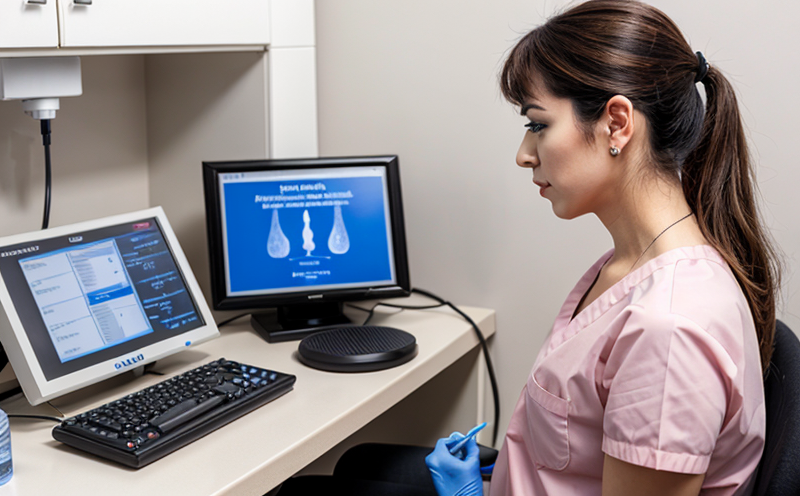Testicular Hormone Testing in Livestock Fertility Studies
The testing of testicular hormones plays a pivotal role in understanding and enhancing livestock fertility. This service encompasses the measurement and analysis of key hormones such as testosterone, luteinizing hormone (LH), and follicle-stimulating hormone (FSH) to evaluate reproductive health and performance in male livestock.
Understanding the hormonal profile is crucial for optimizing breeding programs, improving herd management practices, and ensuring sustainable farming. The process involves meticulous specimen preparation and analysis using advanced laboratory equipment that adheres to international standards such as ISO 17025.
The first step in our testing procedure is the collection of blood samples from the male livestock. This sample must be collected at specific times of the day, often early morning or late afternoon, to capture natural variations in hormone levels. Once collected, the samples are processed within a strict time window to prevent degradation and ensure accurate results.
The laboratory uses state-of-the-art equipment like liquid chromatography-tandem mass spectrometry (LC-MS/MS) for precise quantification of these hormones. This technology allows for high sensitivity and accuracy, essential for detecting even minute variations in hormone levels that can significantly impact fertility outcomes.
After analysis, the results are carefully reviewed by our experienced team of endocrinologists and veterinarians to correlate with observed reproductive behaviors and health conditions. This comprehensive approach ensures accurate interpretation and actionable insights for stakeholders involved in livestock management.
In addition to routine testing, we also offer customized fertility studies tailored to specific farm needs. These studies can include longitudinal assessments over extended periods or comparative analyses between different breeds of livestock. Our team works closely with clients to design these programs specifically addressing their objectives.
The importance of this service extends beyond mere data collection; it provides valuable insights into how environmental factors, nutritional intake, and overall health affect fertility rates in livestock populations. By identifying potential issues early on, farmers can implement targeted interventions leading to healthier herds and higher productivity.
Our commitment to accuracy and reliability is reflected not only in our methodologies but also through continuous training of personnel and updating equipment based on latest technological advancements. This ensures that clients receive the most accurate information possible about their livestock's reproductive capabilities.
To summarize, testicular hormone testing serves as an essential tool for enhancing fertility studies in livestock farming. It helps identify areas requiring improvement, supports decision-making processes related to breeding strategies, and contributes towards more sustainable agricultural practices.
Industry Applications
- Evaluating the effectiveness of breeding programs
- Identifying causes for low fertility rates among males in herds
- Optimizing nutritional strategies to improve reproductive health
- Monitoring changes in hormone levels due to environmental stressors
- Assisting veterinarians and breeders with individual animal management plans
- Evaluating the impact of new treatments or interventions on fertility rates
- Supporting genetic selection programs focused on improving reproductive traits
Environmental and Sustainability Contributions
The accurate assessment provided by our testicular hormone testing service contributes significantly to sustainable farming practices. By identifying factors that negatively affect fertility rates, we help minimize unnecessary culling of animals which would otherwise result in increased resource use for replacement stock.
In addition, understanding the natural cycles and variations in hormone levels helps reduce overmedication or underfeeding practices. This leads not only to cost savings but also to improved animal welfare by ensuring better health outcomes without compromising on environmental standards.
The insights gained from these tests allow farmers to make informed decisions that lead to more efficient use of resources such as feed and water, contributing positively towards reduced carbon footprints associated with large-scale livestock operations.
Competitive Advantage and Market Impact
- Provides a competitive edge by offering precise data on reproductive health which can be used to enhance farm productivity
- Aids in maintaining high standards of animal welfare while optimizing resource usage, thus enhancing reputation among consumers who value sustainability
- Serves as an essential tool for developing targeted marketing strategies based on specific market demands regarding product quality and ethical sourcing
- Helps in complying with regulatory requirements related to livestock health and welfare, thereby reducing risks associated with non-compliance penalties
- Supports innovation within the industry by providing scientific evidence needed for research and development of new technologies aimed at improving reproductive efficiency
- Promotes long-term profitability through sustainable practices that ensure continuous supply chains free from disruptions caused by unexpected health issues in livestock populations





